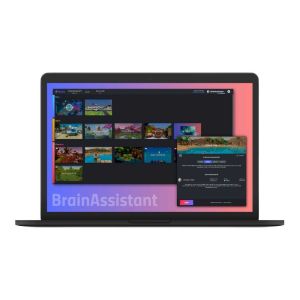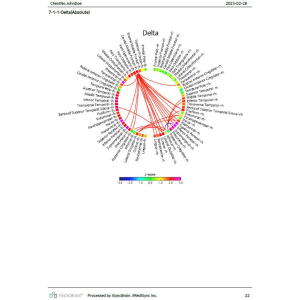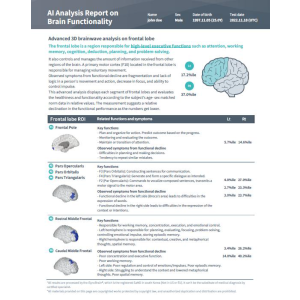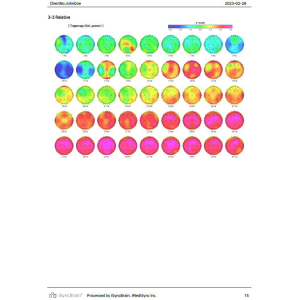We use cookies to make your experience better. To comply with the new e-Privacy directive, we need to ask for your consent to set the cookies. Learn more.
iMediSync Software
- BrainAssistant Biofeedback and Neurofeedback Training SoftwareBrainAssistant is a state-of-the-art neurofeedback software designed to help practitioners provide professional and engaging sessions to their clients. The software provides a thoughtfully designed user interface with a variety of powerful features that ensure a seamless tracking and long-term motivation for children, teenagers, and adults alike. Learn MoreAs low as $919.00
- iMediSync Advanced Normative qEEG Report - Pay-per-useThe Advanced Normative qEEG Report includes all the information from the Basic Normative qEEG report, as well as additional source level analysis. The source level analysis utilizes sLORETA and provides insight to the internal workings of the brain. Learn MoreAs low as $2,138.00
- iMediSync Premium qEEG Report Package - Pay-per-useThe premium Normative qEEG package includes the Advanced Normative qEEG Report & Advanced Summary Report. The advanced reports include all information included in the basic reports as well as in depth analysis. Learn MoreAs low as $3,800.00
- iSyncHeart Individual HRV Reports - One year subscriptionThe Individual HRV (Heart Rate Variability) Report gives an overview of a patient’s heart rate data using a variety of common HRV measures. Learn More$1,200.00
- iMediSync Advanced Normative HRV Report - Pay-per-useThe Advanced Normative HRV Report includes all the same information from the basic Normative HRV Report, as well as an AI prediction of stress stage, anxiety, and depression. Learn MoreAs low as $1,425.00
- iMediSync Basic Normative HRV Report - Pay-per-useThe Basic Normative HRV (Heart Rate Variability) Report utilizes the age-and-sex-matched normative database to see how a patient’s heart compares to their peers. This report utilizes many of the same measures from the individual HRV Report, but then compares those values to the norm. Learn MoreAs low as $1,350.00
- iMediSync Basic Normative qEEG Report - Pay-per-useThis report compares a client’s data to an age-and-sex-matched normative database. The Basic Normative qEEG Report is identical to the Basic Individual qEEG Report, except the scales utilize z-scores instead of power values. The z-score range is selected by the user before the report is generated. Learn MoreAs low as $1,188.00
- iMediSync aMCI Report - Pay-per-useThe aMCI (amnestic mild cognitive impairment) screening utilizes an AI trained on EEG data of patients diagnosed with aMCI to make a prediction of aMCI likelihood. The data used in training included patients from 50 years old to eighty-five, and therefore is only accurate for patients in that age range. Learn MoreAs low as $3,800.00









